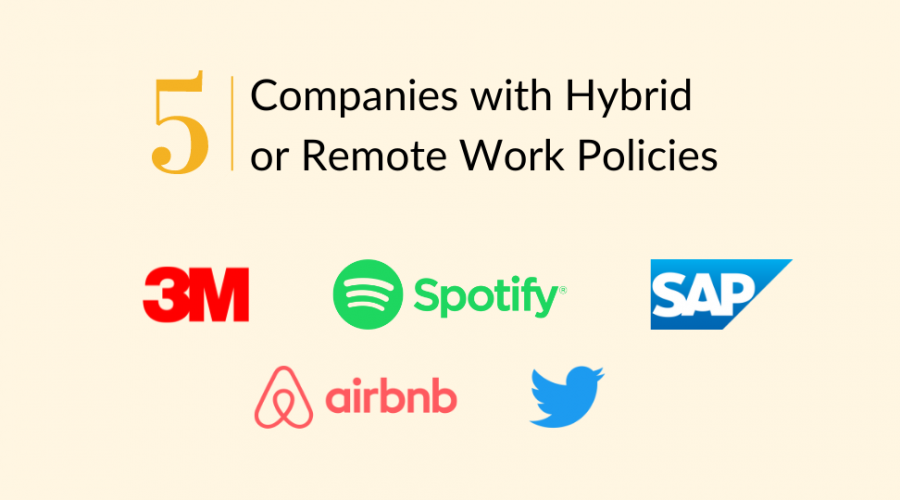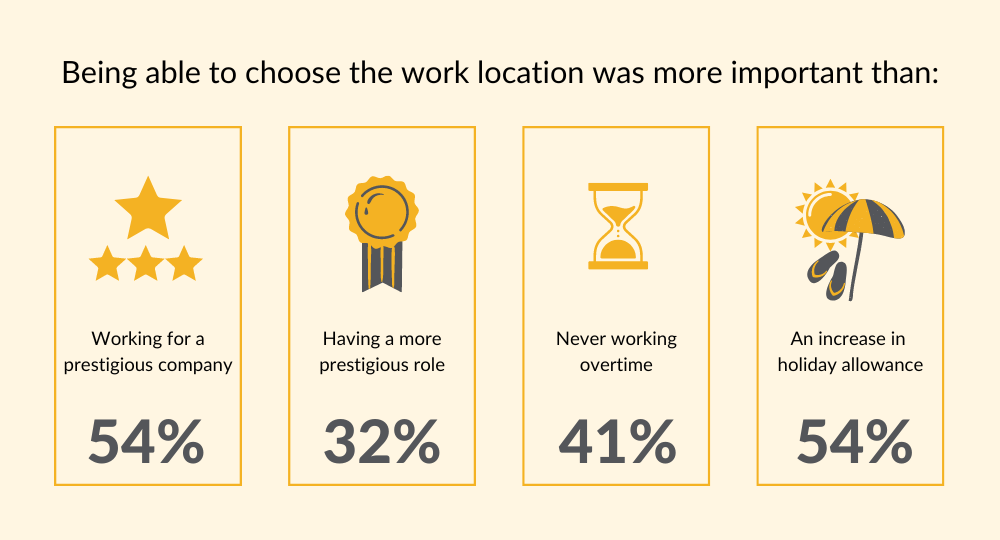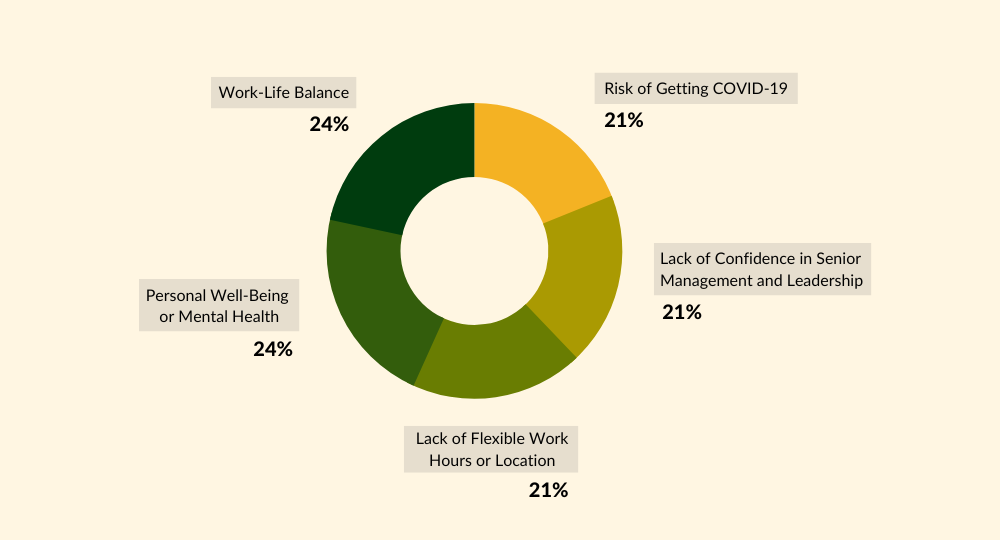
That is the question for some, but not for Knowledge E – well, at least not anymore! Our latest office policy? Read on to find out more!
Do you remember where you were when you first found out about COVID-19? I do, and strangely enough, I was with a close colleague of mine at one of my favourite cafés close to our headquarters in Jumeirah Lakes Towers working… REMOTELY!
Lockdown and government recommendations to avoid working from the office compelled Dubai companies like us to go fully remote during the worst part of the pandemic. Restrictions then eased, but we decided to make permanent changes. We have recently implemented a flexible working arrangement. This was not new to Knowledge E, as we have always had certain roles operating in certain locations working remotely but now the people working from our headquarters in Dubai get the chance to. We encourage regular catch-ups in the office as it has shown that being in the office is the most effective way to get certain things done; I think we can all relate to that. How often have you had to send numerous emails back and forth to get feedback or to get something approved – when the same task would have taken five short minutes should you have been in the same physical place as the other party?
We are far from being alone in implementing remote working. Today, one out of seven jobs on LinkedIn offers the option of remote working compared to one in 67 back in 2020, only two years ago! If you’re in recruitment/HR, here are some more numbers to reflect on; remote jobs attract 260% more views and nearly 300% more applicants compared to on-site roles, and companies working fully remotely (or companies with no corporate headquarters) can hire 33% faster than other companies (1). By the way, did you know that small-sized companies are 200% more likely to hire full-time remote workers (2)?

“What is the perfect ratio of home vs office work?”, you might wonder. Well, there’s no one size fits all, but Gallup research found that optimal engagement occurred when working three to four days remotely (in a five-day work week). Furthermore, they found that these people were the most likely to have a ‘best friend’ at work as well as opportunities to learn and grow (4).

A survey was made in the United Arab Emirates (which is of course a little extra interesting as this is where our headquarters are based), showed that most people want to have the opportunity to work from home. The highest numbers were reported in Abu Dhabi at 70%, followed by Dubai at 63%, and the other emirates were at 60%. Furthermore, around 50% of the respondents in Dubai and Abu Dhabi said that their productivity stayed the same while working from home. In fact, more than 44% of residents in Dubai said that it even enhanced their productivity and increased their motivation as well (6). According to International Workplace Group’s wider survey across 80 nations, 85% of respondents said that flexible remote policies have positively impacted their productivity (5).
We carried out our own small-scale internal survey here at Knowledge E, and the numbers speak for themselves. 84.6% said that their job satisfaction level improved following our new flexible working arrangement! 69.2% felt an improvement in work-life balance, 84.6% said they have more time on their hands now. Cost of living was also impacted positively, 72% said it has decreased. Furthermore, 84.6% reported that their productivity has increased. We asked everyone to rate our flexible working arrangements overall (on a scale of 1-5 with 5 being the best) and the average rating was 4.84!
What’s more, remote or flexible working arrangements can also contribute to a lot of savings, both on the employee’s and the employer’s side. Employers can save on rent, utilities, supplies, cleaning and maintenance charges etc. The biggest save for employees relates to the commute.
Of course, I cannot write about working from home without mentioning the classic Chinese study (of CTrip, a 16,000- employee, NASDAQ-listed Chinese travel agency) on the topic so I’ll start with that. If you haven’t heard of this before, here’s what it was about:
call centre employees volunteered to participate in this study. Of those who volunteered, some were randomly selected to work from home and some from the office for a period of nine months. Working from home led to a 13% performance increase (9% was due to fewer breaks and sick days, and 4% was due to more calls per minute). After the study, the company rolled out a working from home option for everyone. Interestingly, over half of those who didn’t initially volunteer to work from home for the experiment then switched (7).
The 2022 Work Trend Index, a study of 31,000 people in 31 countries, showed that 17% of people left their jobs in 2020 and that number even slightly increased to 18% in 2021 (1). If you want to snatch up this talent, another survey showed that you’ll need to be able to offer flexible working as 4 out of 5 stated that, given two similar job offers, they would turn down the one that didn’t offer that (5).

We all want to love our job and companies should strive for this as well, as decades of research shows, when employees are engaged, their performance improves. Highly engaged workplaces had a 41% lower absence rate, 40% fewer quality defects, and 21% higher profitability as the cherry on top (4).
Another factor that many forget to mention is the potential benefits for the environment! I was addicted to sticky notes as well as notebooks prior to Covid-19 and remote working, I also used to print a lot (especially so I could highlight sections with my marker). Now, I don’t even own a pen (well I do but you get the point), I do not print out things, haven’t seen a sticky note since 2019, and frankly I don’t miss them. Some seven years ago (already!), Xerox reported that reduced driving of the remote workers reduced carbon dioxide emissions by nearly 41,000 tons, how’s that mother nature (4)!
Just like any coin, there is a backside to remote working, like possible isolation. A big challenge many hybrid workers face is knowing when and why to come into the office, a recent study showed a whopping 38%. There’s a huge potential to address this as only 28% of leaders said that they have created team agreements to define just that (1). One other factor (among many) to consider is, of course, the technical aspect. Does everyone have what’s needed when working from home? And how’s data security being maintained? Do companies have the tools and procedures in place for effective remote communication?
Enough with the hard science, if you happen to be a fan of taking online quizzes, here’s one that I found (and took). I found the results scaringly accurate: “you’re a great fit for working remotely”. I also learned that “it’s better to have an office personality and work remotely than it is to have a remote personality and work in an office” and when the so-called “office personalities” (people who like consistency, collegial work environment and clearly defined expectations) work remotely, 31% actually say they love their job (8). Building upon that, another study showed that people who work from home are almost twice as likely to say they love their job compared to those working from an office and hybrid workers were about 58% more likely to say they love their job compared to those working from an office (9).
Is this the future? Well, 53% are likely to consider transitioning to hybrid work in the year ahead (1)! It’s at least a future the data says many want. As I mentioned earlier, there is no one size fits all, but we are positive that this will fit our company. Please get in touch and tell me more about your company’s working arrangements, I am always curious to know!
Before I let you go, I wanted to leave you with another blog post featuring some tips for working from home. I think you’ll find it interesting – happy reading!

How to Work from Home - COVID-19 Edition
Sources:
- Making Hybrid Work Work – Microsoft
- Remote Work Statistics – Small Biz Genius
- Companies that Switched to Permanent Hybrid or Remote Work and Are Hiring Right Now – CNBC
- Working Remotely – Gallup
- International Workplace Group Survey 2019 – Regus
- Remote Work: UAE Job Applicant Survey – Michael Page
- Does Working from Home Work? Evidence from a Chinese Experiment – Stanford Graduate School of Business
- Quiz: Is Your Personality Suited To Working Remotely Or In The Office? – Leadership IQ
- You’re 87% More Likely To Love Your Job If You Work From Home – Forbes


